Do you want to start a career in clinical research? Do you want to get a Clinical Research Associate (CRA) job in ANY organization?
Well, you’ve landed in the right place.
There are a ton of CRA jobs out there. But there is one major concern most employers have with entry-level candidates.
Employers want applicants to have relevant CRA experience. Your resume doesn’t even make it to the hiring manager’s desk because you don’t have two years of CRA experience.
How are you able to get CRA experience when they don’t really teach you to become a CRA in college?
- You’ve gone through four years of college education and have a degree engineering, science or management
- You’ve spent years working as a foreign doctor or even had your own private practice as a clinician
- You’ve successfully completed a certification in clinical trial management
You certainly have the right skills for a CRA role. But you’re finding it almost impossible to get your foot in the door.
And let’s be honest. Most people in clinical research learn how to be a CRA on the job. Through some mysterious way, they get hired and trained to become a CRA.
In this article, I’ll share with you everything I know that will help you build your clinical research resume. Pick 1-2 opportunities from this list below and follow all the steps in my BEAVER Method – Get A Clinical Research Job and you’re golden!
Ultimately, my goal is for you to get a paid CRA job in any organization of your choice.
So let’s get started
Hospital or Clinic Volunteer
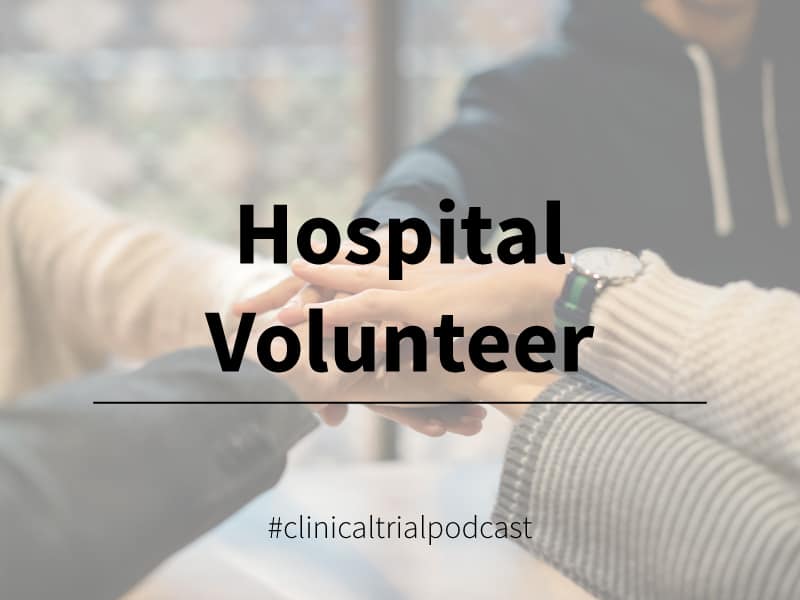
This is my favorite strategy to get CRA experience. It’s also exactly how I got my first break in the industry.
Believe it or not, most large hospital or clinics have an official volunteering program. The volunteer program mainly geared towards retired individuals who want to give back to the community. But that doesn’t mean you can’t qualify.
There are two ways you can volunteer at a local hospital or clinic. I’ll cover each one in-depth.
Traditional Volunteer
This is the type of volunteering role where you’re cleaning hospital beds and putting new sheets after the patient leaves.
Or you may be tasked to move patients from the emergency room to the radiology department for a CT scan or X-Ray.
Or you may be simply stuffing envelopes with letters to hospital donors.
There is no research involved. However, these internships are equally for someone who has close to zero experience in the medical field.
Such volunteer roles are quite easy to secure. All you have to do is fill out the volunteering application form to indicate your interested and availability to serve as a volunteer. Make sure you fill the forms accurately.
Generally speaking, you’ll want to commit at least 4-6 hours each week and be willing to serve the community and patients. It’s not about you or your desire to get CRA experience. It’s about the patients.
You volunteering application will be accepted in a few days. Next, you’ll be asked to complete simple medical exams to ensure you’re a safe human being with no diseases that pose a threat to the patients.
Once your test results are in and you’re all clear, you’ll get volunteer badge and become an official volunteer.
It’s really that simple.
Now you’re wondering, “How does being a hospital volunteer help me become a CRA?”
My short answer: The foundation of any clinical research job is to serve patients.
By working closely with patients, physicians and nurses, you’re unknowingly absorbing clinical knowledge that you otherwise wouldn’t be able to do so.
You’re also building a valuable skill of being able to work with doctors and nurses. These are the same individuals that serve as site investigators and research coordinators on clinical studies.
Once you’ve been a traditional volunteer for 3-4 months, you’ll have relevant clinical experience that you can list on your resume.
You want the recruiter and hiring managers to get a sense of how your volunteering work had an impact on the clinical practice, the things you learned or observed and the influence you had on patient’s lives.
Clinical Research Volunteer
I consider this as a special and lesser known volunteer path.
Many practicing physicians have a deep desire to conduct research. But they don’t end up publishing research papers or presenting at conferences.
Why?
Because seeing patients is a full-time job. For instance, a family practice physician in the United States has to see a minimum of 18-22 patients in an 8-hour day. This leaves little or no time to conduct research.
The doctors don’t have enough time on their hands to write a protocol, make an IRB submission, review medical records or charts, or perform analysis on the clinical data.
But this is where you come into rescue. Follow these five simple steps and get relevant clinical research experience.
Step 1: Determine which therapeutic areas you’re interested in. If you’re not sure, I’d recommend cardiology, oncology or diabetes.
Step 2: Next, you want to identify doctors working in those specialties. You can find these doctors by looking at the local hospital website.
Step 3: After identifying potential doctors you want to work with, send each of them a personalized email an expressing your interest in being a research volunteer.
Step 4: After a few email exchanges and probably an in-person interview with the doctor, you’ll land with you dream clinical research volunteer role.
I’ve actually followed this exact process and was able to get one publication and one presentation on neonatal care.
Step 5: Once your research paper or presentation is complete, you can add it to your resume and brag about it to recruiters and hiring managers.
Intern at a Fortune 500 Company
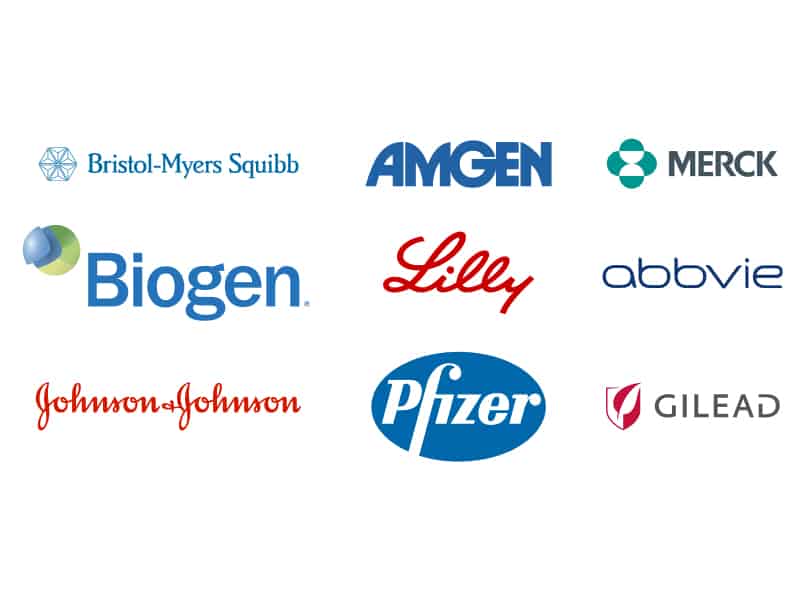
Most of us understand the value of an internship. It’s a great way to get relevant clinical experience and probably making a bit of money on the side.
Internship at a Fortune 500 healthcare company such as Pfizer, Abbott, Merck, Apple and even Google (yes, Apple and Google have healthcare products) can be a very rewarding experience.
These are also most sought-after internships. But that doesn’t mean you can’t get in.
Pros/Cons of Internship Roles at Fortune 500 Companies
Pros:
- Excellent clinical training opportunity. You get to learn and implement standard operating procedures, application of GCP in real-world studies, working with cross-functional teams and more
- You will most likely get paid for your time as an intern
Cons:
- A structured application process requires advanced planning. You will generally to apply 9-12 months prior to the target internship start date
- The internship program is mostly geared towards full time or part-time students
- Highly competitive (but hey, competition can make things better)
Resources: Fortune 500 Healthcare Company Internship and Coop Programs
Here is the current list of Fortune 500 companies.
You can apply filters such as “Industry – Pharmaceuticals” to identify healthcare companies.
Links to a few Co-op and Internship Programs at Pharmaceutical, Biotechnology, and Medical Device Companies
Pfizer’s US Summer Student Intern Program
Merck’s career program for interns, coops and recent grads
AbbVie’s US Student Internship Program
Eli-Lilly Student Opportunities
Bristol-Myers Squibb Internship Programs
Biogen Internship and Coop Programs
Abbott Internships and Development Programs
Work at a Healthcare Start-up
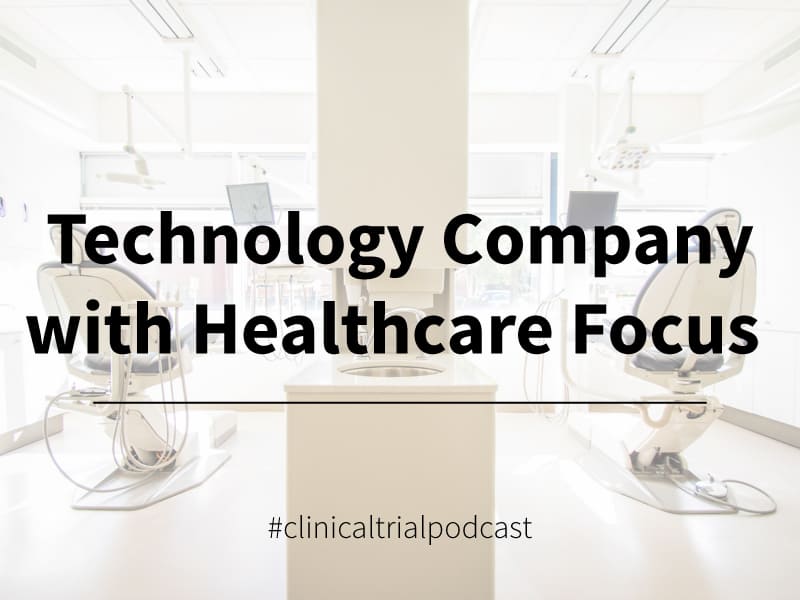
This strategy is an extension of securing an internship role at Fortune 500 healthcare companies.
When most people think of jobs or internships, multinational corporations come to the top of our mind. However, the Fortune 500 list is limited to the top companies.
There are thousands of other companies that operate in the healthcare space but do not make it to the Fortune 500 list.
A quick search on Angel.co revels that there are at least 18,956 healthcare startups. This list doesn’t even account for established companies that don’t make it to the Fortune 500 list.
A position at a healthcare startup that sells medical products or services is an excellent opportunity to not only learn more about healthcare space but have a greater impact in society.
Here is why I think a healthcare startup will love you:
- Most start-up companies are resource strapped. Resources could be money, time, or people. Therefore, if a startup can acquire an extraordinary talent such as yourself, they can save one or more of these resources
- Most start-ups are trying to grow and spread their message. If you can contribute towards the company’s goals and help them get one step closer to the finish line, they have no choice but to fall in love with your passion and commitment towards their organization.
Pros/cons of working at a healthcare startup
Pros:
- You get to wear different hats at a healthcare start-up. One day you’ll be working on a new clinical trial and the next day you’ll be packing boxes to ship medical products to a clinical trial site. Such experience is of much value to companies hiring for CRA positions
- You’ll be presented with opportunities to work on important problems. If you can jump on these opportunities and show that you can execute and deliver results, you can accelerate your clinical research career
- Unlike Fortune 500 healthcare companies, start-ups are lesser known to job seekers. This makes it relatively easy to secure an internship, full-time or part-time position
Cons:
- Your work objectives may not be as structured as a Fortune 500 company. You will probably be on your own and will need to figure things out by asking questions to people or finding clinical resources on government websites such as FDA.gov.
- There won’t be an established internship application process. You’ll need to email and call the CEO or head of clinical or R&D to get your foot in the door
- Your role may not be limited to clinical research. You’ll be expected to work on non-clinical tasks or goals
- You may or may not get paid. It depends on what you can negotiate
Resources: Working for Healthcare Startups
My favorite resource to research healthcare companies is biospace.com. It is a comprehensive list of biotechnology, pharmaceutical, and medical device companies. Similarly, you can look up healthcare companies on angel.co.
Just start going through the company websites one-by-one, find out the CEO or vice president of clinical and begin contacting them for potential internship opportunities.
I know it’s a tedious process.
Plus there is a fear-factor of sending cold emails to people you don’t know. That’s precisely why very few people are doing this.
But if you want to become a CRA, this is your best shot to become one.
Work for a Clinical Research Site or Site Network
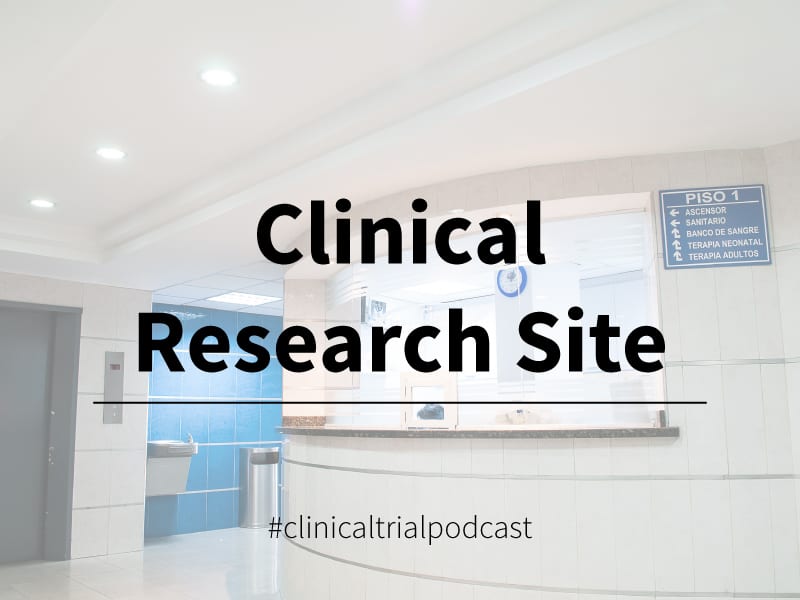
Similar to a volunteer at a hospital or clinic, you can apply to work at a clinical research site or a clinical research site network.
To begin, let’s get some definitions out of the way.
A clinical research site is a location where a clinical trial is conducted.
It is generally a place where the site investigator and research coordinators see potential and current clinical trial patients, store regulatory binders, maintain patient medical records, place where CRA performs monitoring activities and more.
A research site can be independent, standalone office or part of a larger hospital system.
Many current clinical research professionals, which includes CRAs, started their careers as a clinical research coordinator (CRC) at a trial site.
Hospitals and clinics are looking for CRCs to enroll clinical trial patients, perform medical chart review or perform tasks such as data entry in clinical databases. This experience is in many ways the foundation of many CRAs in the industry.
It is important to note that although many CRCs are Registered Nurses (RN), you don’t need to be an RN to become a CRC.
On the other hand, a clinical research site network, is a network of sites and it means just that.
Sites will form networks or belong to paid networks to reduce fixed costs such as marketing and business development, provide a consistent experience to trial sponsors and CROs, and/or meet the highest level of clinical research standards.
Pros/cons of working at clinical research sites or site networks
Pros:
- One of the best ways to understand the inner workings of a clinical research site
- Opportunity to work with multiples sponsors, CROs and patients. You’ll not only gain valuable experience but also grow your network, which can ultimately help you secure a full-time CRA job
- Highly sought-after experience for companies looking for CRA or CRA assistant candidates
Cons:
- Given the academic and research-driven focus, internship stipends or salaries may be lower than industry jobs (sponsor/ CRO)
- If you’re an intern, you may not be able to work directly with patients due to privacy reasons or site policy. Instead, you’ll be assigned menial jobs such as filing regulatory documents or subject case report forms, all of which you should undertake with pride
Resources: How do you find a clinical research site?
Finding clinical research sites is a bit tricky.
For independent clinical research sites, you’ll have to rely on Google search or word of mouth.
Search of the terms “clinical research site + [your city/state/country].” If the site has a web presence, you will likely find them.
Large hospitals, particularly medical schools, are involved in clinical trials and have a clinical research department.
You basically contact the director of their clinical research or human resources (HR) department and ask them about career opportunities in their department.
Resources: How do you find a clinical research site network?
There are quite a few site networks but the sites that participate in these networks are sometimes not publicly available.
Why?
Well, because some site networks charge sites a flat annual fee to belong to their site research network or the site network charges sponsors get access to their sites. Someone has to pay for this information, it’s either the sites or sponsors.
Clinical Research Network has a public listing of sites in their network. You can reach out to some or all of these sites and ask them about potential career opportunities in research.
Center Watch also has a list of sites by geographic location
Research Match is an NIH funded initiative that connects patients and researchers. There are some big institutional names here. You can reach out to any of these sites and see if they are looking to hire or get volunteer help.
Platinum Research is another website where you can find a list of site research networks. Click on the “company websites” to get information on research sites in your area.
Work at a Site Management Organization (SMO)
Similar to other career options we’ve discussed so far, working at a SMO is a great way to secure CRA experience.
A SMO is responsible for managing day-to-day trial management activities at a research site. Simply stated, the role of the SMO is to fill the gaps at a site.
For instance, a site may not have a dedicated research coordinator. This is where the SMO comes in play. Some sites have their own preferred SMO whereas other sites may be assigned a SMO by the clinical trial sponsor or clinical research organization (CRO).
Working at an SMO is in many ways similar to working at the site as described earlier. 12 – 24 months of SMO experience will generally be sufficient to meet the “two-year” CRA experience most sponsors or CROs require.
Pros/cons of working at a SMO
Pros:
- Lesser known career opportunities, so your chances of getting hired are quite good
- Opportunity to truly understand the challenges faced by clinical research sites. This experience is valuable for anyone interested in becoming a CRA
- SMOs are more common in Asian countries such as Japan, India, Taiwan, and China. If you’re looking for international clinical research experience, this might be one the best ways to get it
Cons:
- US-based SMOs are not as common and it can be challenging to come across a SMO closer to where you currently live
- Many SMOs are regional as they serve sites in their area
Resources: How to find a Site Management Organization?
Below are a few U.S. based SMOs
Work at a Clinical Research Organization (CRO)
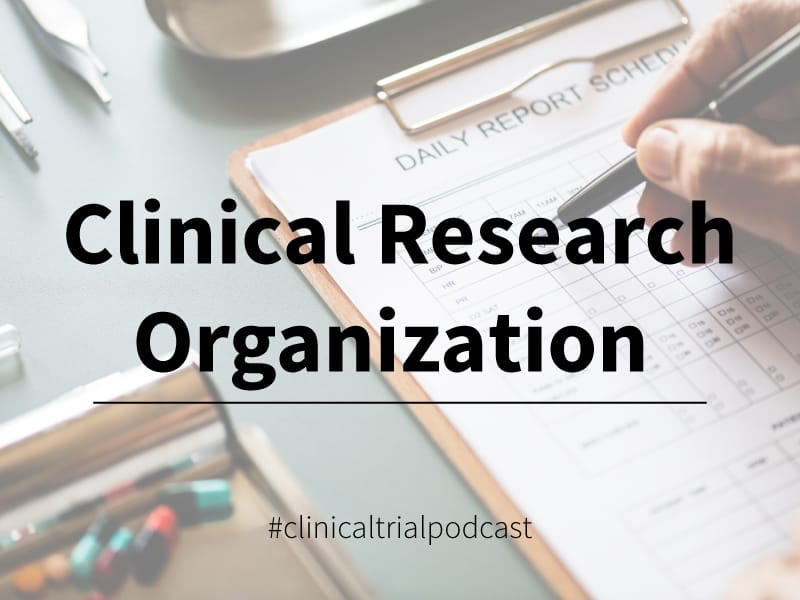
A CRO provides clinical research services to sponsors. They are also known as Contract Research Organizations.
Today CROs are more popular than ever. Many Sponsor companies, large and small, don’t have the in-house clinical expertise to conduct a study. This is where a CRO comes into the picture.
A CRO provides the Sponsor the clinical resources i.e. people needed to execute on a clinical strategy. By hiring a CRO, the Sponsor isn’t stuck with permanent headcount, should they decide to abandon a medical product or terminate a clinical trial.
CRO size and specialty can vary. For instance, there are niche CROs that only serve certain therapies, regions, or types medical products such as a CRO specializing in medical device research.
Pros/cons of working at a CRO
Pros:
- More likely to hire individuals with little or no clinical research experience
- Opportunity to work on multiple therapeutic areas, medical products, and Sponsor companies
- Many CROs offer on the job training programs to help you with your professional development
Cons:
- Service-based nature of CROs can lead to a stressful work environment when working with demanding Sponsors
- CRO personnel assignments are generally reviewed and approved by Sponsors. You may not get to work on your dream project if a Sponsor things you are not qualified, especially if you’re a newbie
- Pay for entry-level positions will likely be low. But if you truly care about CRA experience, the pay shouldn’t matter when you’re starting out. Build CRA relevant experience and then take on another opportunity within or outside the CRO
- Job descriptions may list a minimum two-year experience requirement, but I encourage you to apply to these junior level positions such as CRA assistant or clinical site coordinator/associate
Resources: How to find a Clinical Research Organizations?
Below are a few global CROs for you to consider:
Another option for finding CROs is First Clinical’s Supplier Directory, that lists several the companies that provide contract clinical research services.
Intern at a Government (Regulatory) Agency
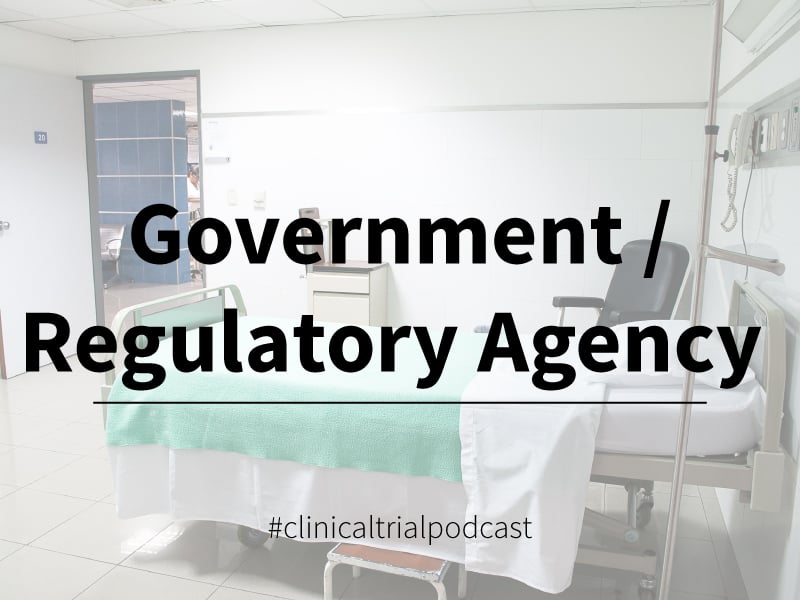
Government agencies play a crucial role in clinical research. They review and approve medical products. Their primary concern is patient safety.
Such organizations include the US Food and Drug Administration, competent authorities in the European Union such as Germany’s BfArM or China FDA.
Government laws and regulations form the foundation for any company wanting to obtain medical product approval for commercialization. The laws and regulations also apply to service-based companies such as CROs and SMOs and clinical trial sites conducting research.
Every clinical organization must follow the law and stay compliant. This is what makes working for government agencies exciting. You can learn things that truly matter when it comes to clinical research. You can then apply these learning as you advance in your clinical research career.
Pros/cons of an internship at a Government (Regulatory) Agency
Pros:
- You’ll learn a lot about health care regulations, patient safety and how decisions are made inside government agencies. This is an incredibly valuable experience to have early on in your career
- Highly regarded among CRA hiring managers and recruiters
Cons:
- Many opportunities will be unpaid or may come with a small stipend. If your primary objective is to gain valuable research experience, taking on volunteer opportunities within government organization is a great way to build your resume
- Certain organizations may require you to be a citizen of the country you’re interested in working for
Resources: Government (Regulatory) Agencies
Check your local country, state, county or city website to find out which department or division of the government is responsible for overseeing healthcare projects such as clinical trials.
Food and Drug Administration has an unpaid student volunteer program. I was pleasantly surprised to learn that this program is open for non-US citizens including permanent residents and visa holders.
You can also volunteer at FDA field offices, so you don’t need to relocate to Maryland. But if you can work at the FDA headquarters, that is probably the best as you’ll have access to more people and resources.
Other notable government or government-funded organizations are as follows:
- National Institutes of Health (NIH) has a program for students and recent graduates
- Centers for Disease Control and Prevention has an amazing program for students and college graduates
- U.S. National Library of Medicine has career opportunities for you to consider
- World Health Organization (WHO), an agency part of the United Nation also has an internship program
Work For A Nonprofit Focused On Healthcare Initiatives
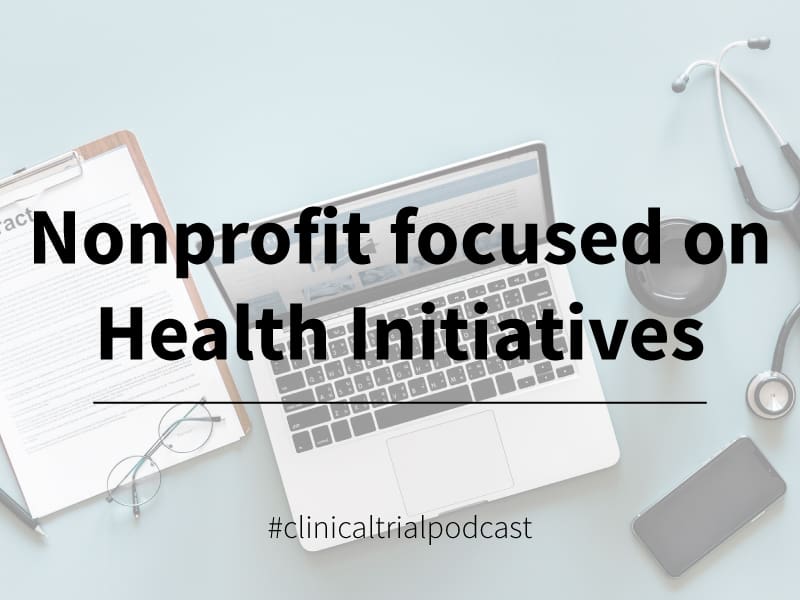
Nonprofit organizations existing to fill gaps that the private and public sector do not or are unable to address. Nonprofits are mission-driven organizations.
There are thousands of nonprofits in the United States that are focused on healthcare initiatives and medical research. Such nonprofits include clinical research associations such as Association of Clinical Research Professionals, and American Heart Association.
Many people looking for CRA experienced are focused on CROs and Sponsor companies. But there are many lesser-known nonprofits that are looking for people like to you to work in the healthcare sector.
Your first job at these nonprofits will probably not a CRA position but you’ll gain valuable experience that will allow you to transition to a CRA position in the future.
Pros/cons of working at a nonprofit
Pros:
- Nonprofits are generally looking for motivated individuals to support their mission
- Prior clinical research experience won’t be required in most organizations
- Excellent opportunity to take on meaningful work that isn’t focused on the financial bottom line. For-profit organizations are primarily driven by money and the work itself may not be as fulfilling
Cons:
- A nonprofit may not be able to afford high salaries. You may be given a stipend or just enough money to survive
Resources: How to find Nonprofits with Healthcare Initiatives?
- First Clinical has one of the most comprehensive clinical research association directory listing. Many of these industry associations are probably nonprofits. Just start going through these associations one by one, reach out the Executive Director of each of these organizations and inquire about volunteering, full-time or part-time opportunities
- Guidestar is the world’s most comprehensive database for nonprofits. You can search for nonprofits in “Medical Research” or “Health” category and sort by “Gross Receipts”. If you start with organizations that have funding, they are more likely to hire you for a paid position
- Similar to Guidestar, there is Charity Navigator, where you can perform an Advanced Search for nonprofits in the Health → Medical Research category
- Health Finder, which was developed by the Department of Health and Human Services has a listing of nonprofit organizations in the healthcare field
Invest In Your Learning
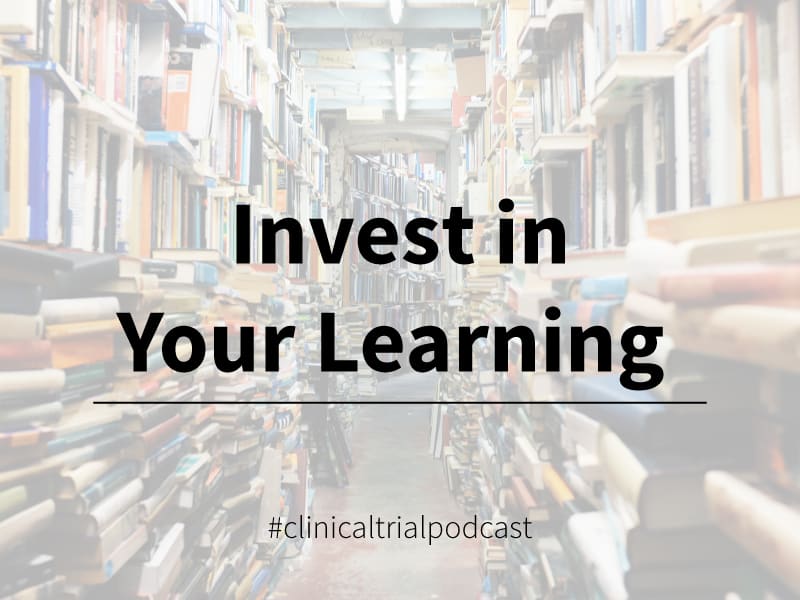
One of the best ways to get CRA experience is to invest in your learning. You can take on a certification program with organizations such as ACRP or SOCRA.
There are also paid and free online courses that you can take with ACRP, free GCP certification with NDAT CTN Training, or clinical research courses on Coursera.
However, knowledge through certifications or courses in and by itself is not sufficient to get a CRA role. You need to “learn” through practical experience.
You can also consider attending or volunteering at clinical research conferences hosted by companies such as ExL events, CBI events, ACRP or SOCRA. Such conferences allow you to network with like-minded people, which in turn creates opportunities for you and everyone else attending these events.
Finally, I would do a disservice to this article if I did not mention the important soft skills you need to master on your way to becoming a CRA. Some soft skills include negotiation, active listening, not complaining, empathy and self-awareness.
Conclusion
We’ve covered 9 different ways you can gain CRA experience. Pick 1-2 opportunities from this list, and pursue them with your full focus and energy.
- Hospital or Clinic Volunteer
- Intern at a Fortune 500 Company
- Work at a Healthcare Start-up
- Work for a Clinical Research Site or Site Network
- Work at a Site Management Organization (SMO)
- Work at a Clinical Research Organization (CRO)
- Intern at a Government (Regulatory) Agency
- Work For A Nonprofit Focused On Healthcare Initiatives
- Invest In Your Learning
Apply the foundational principles I share in the BEAVER Method – How to Get A Clinical Research Job and you’ll be on your way to getting your dream clinical research position in any organization.
What are you planning to do next? Let me know if the comments section below.

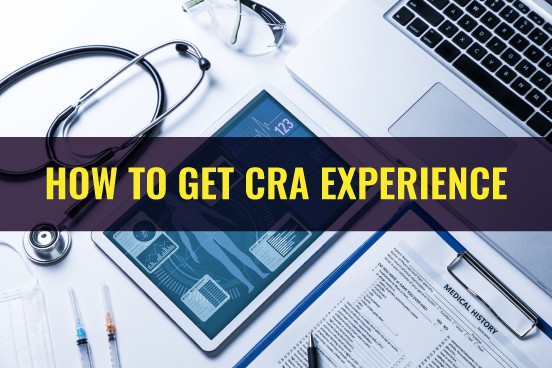
69 Thoughts on "How To Get Clinical Research Associate (CRA) Experience"
Overview of Clinical Research | Clinical Trial Podcast
How Directors Can Attract and Develop Clinical Research Associates
Can You Do Clinical Research With A Phd? – Online Phd Program
How To Prepare For The CCRP Exam – Zksnyder.com
Extreme Night Owl
October 31, 2017Very good information. Thank you!
Kunal Sampat
November 1, 2017Thank you@E@extremenightowl:disqus Let me know if you have any specific questions. Happy to help.
Gunturu .Neeharika
December 5, 2017Hi kunal, I’ve been reading articles about volunteer research work online and I just got ended up here. Firstly, thanks for this simple and detailed information . I’m an ent surgeon from India but settled in Sydney as my husband is an Australian citizen. Im on my visitors visa now for next 5 months and I do want to utilize this time gaining experience in / learning research work while waiting for my medical registration here in Australia. I want to enrol as a volunteer in clinical trials or research work and I’m new to this area so, it would be great if you could help me with this ( any idea about opportunities in Sydney) .Thanks neeharika .
Kunal Sampat
December 21, 2017Thanks for taking the time to read and comment. Glad to hear you find the information useful. I’m happy to help you and will send you an email with details.
asma
September 3, 2019kunal i have questiion. I am base sas certified, currently living in atlanta. last ten years i was busy looking after my kids and family. now i want to work as clinical sas progrmmer. i want to know the job prospects especially in atlanta. can you help me.
Kunal Sampat
September 3, 2019Hi Asma,
Have you tried to apply the BEAVER Method towards your job search efforts? https://clinicaltrialpodcast.com/get-a-clinical-research-job/
What is your #1 challenge with identifying potential opportunities?
– Kunal
Adina
January 1, 2018Hi Kunal,
Thank you for your great information.
I am a medical school applicant doing my msc in medical physics. I was thinking of part time joining a clinical research group as well. I also would love to publish some papers on clinical research area as well. I am very skilled in data analysis and working with people. My background is biophysics and math. Do you have any idea how I could go about that?
Thank you,
Kunal Sampat
January 3, 2018Hi Adina, Thank you for reaching out. Yes, I think there are many ways for you publish papers in clinical research. One recommendation I have for you is that you reach out to some medical doctors that are actively conducting clinical trials at a teaching hospital near your home. You can then collaborate with them on a research project as volunteer. Since you’re proficient at data analysis, you can help the medical doctor collect and analyze clinical data. This can be retrospective data. The doctor will know where to publish etc. and he/she will add you as an author on the paper. This is how I got my very first paper in clinical research. Hope this helps. Let me know if I can answer any additional questions.
Pradeep
January 29, 2018Hi Kunal,
I am research professional with experience of 8 yrs in clinical trials in laboratory, quality assurance and recent role which was in data management /administration. (volunteer).Despite of such a strong professional experience can’t get a break through in the field. Because of recent volunteer role get some interview calls but don’t have ethics application experience holds me back. I am desperately looking and applying for clinical research assistant role but could not get it.Have a good references too but don’t know where I’m lagging behind as feedback of interviewers says they have more experienced candidates who has recently done the program or role. Kindly share some advice. Thanks . Pradeep
Kunal Sampat
January 31, 2018Hi Pradeep,
Have you checked out my other blog on “How to Get A Clinical Research Job” Here is the link to the blog post. https://clinicaltrialpodcast.com/get-a-clinical-research-job/
Please give this method a try and let me know if you have any additional questions.
Kunal
Neha
August 27, 2018Hi kunal,
Thanks for these important tips. I am graduate as dentist from India and then i completed my post graduate diploma in clinical research from Institute of Clinical Research India. Post completion of this course, I had 6 months training as clinical research manager at a CRO and then worked as CRA at PGIMER, Chandigarh, India on an oncology trial for 6 months. Currently I am on visitor visa in Melbourne, Australia with my husband who is PR here. I want to utilize this time in some training or education for 3 months as i cant work on visitor visa. Kindly guide me with best of your knowledge and experience. Email is [email address removed]
Wasim Kamate
August 27, 2018Hii Neha, we too have completed MDS and postgraduate diploma course in clinical research in Maharashtra India..Please guide me further as to what can I do to get experience in clinical research and post of clinical research manager in India, more comfortably in Maharashtra. Please guide us on email: wasim09k@gmail.com
Wasim Kamate
August 27, 2018Hi Kunal,,, Please guide me….I am Dr. Wasim Kamate, MDS with postgraduate diploma course in clinical research in Maharashtra India..Please guide me further as to what can I do to get experience in clinical research and post of clinical research manager in India, more comfortably in Maharashtra
preeti
September 10, 2018thanks for sharing great article with us
keep doing great work
Kunal Sampat
September 10, 2018Thank you, Preeti
Anisha
September 28, 2018Hi Kunal! Thank you for the valuable information.Prior to reading this article, I graduated with a bachelors degree in science and have been trying to get clinical research coordinator positions but to no avail. Hence I took up a clinical research internship with a Therapeutics company that focuses on immunotherapy for cancer.I figured getting experience from this internship would help me with attaining a CRC position in the future. I have thought long about whether what I did was right as I know I won’t be fully focusing on research after this internship. Your article has truly given me hope 🙂 Thank you!
Kunal Sampat
October 21, 2018Glad to hear Anisha. Don’t give up hope but take action towards your goal. Good luck and keep me posted on your progress.
Di
October 13, 2018Wow what an incredible resource and well written article. I thank you very much Kunal!
KG
October 23, 2018Hi Kunal,
I am a Commerce graduate and I did MBA in Finance and Supply chain management in 2011. I have changed my area of expertise a couple of times ranging from Banking and Finance, Retail, HR (compliance) and then ventured into data science in 2016 with a certificate in Big Data. I have been literally struggling to get a break in clinical SAS programming since this is my area of interest for a Full-time career option. I don’t know where to start. I appeared for an interview at PPD in March but did not clear it. I am due to appear for Clinical SAS programmer exam in the month of November but I am finding it extremely difficult to study the subject matter. I want a break in a CRO asap but dunno how and where to start. PPD had said that they are going to come up with a fresher opening where adequate training would be given but there has been no response. Please guide me. Many thanks. KG
Kunal Sampat
November 4, 2018Hi Koyel,
Thanks for reaching out. A couple of things to consider:
1. I would reach out to the hiring managers at the various companies and jobs you’re interested in and feel qualified. You’ll need to use LinkedIn to find hiring managers. It is important that you contact people who are responsible for making hiring decisions. Don’t contact recruiters.
2. Get super organized around your job search. Focus on 10 job openings at a given time. You should consider creating a spreadsheet that lists this jobs and the name and phone number of the hiring managers. Then call those hiring managers and let them know you want to work for them. Get their advice and listen to their feedback. If you hear “no’s” change your job search strategy based on the hiring manager’s feedback.
To summarize, you need to focus on 10 positions at a given time and talk to the hiring managers. Your goal should be to get a “Yes” or a “No” from them. Don’t rely on PPD only.
Goodluck
Koyel Ghosh
October 24, 2018Hi Kunal,
I am writing to you to inform you that I am struggling to get a break in CRO for the last six months. I am BCom graduate and I have done MBA in Finance. I have experience in varied fields ranging from Finance, Banking, Retail, and finally Data science. I worked as a data scientist in a startup for 3months and I decided to pursue Clinical SAS as a career option. I have taken various training online Edex and Course-Era. I also completed certificate training from NIH and secured 88%. I am due to appear for clinical SAS exam in November. I am finding it extremely hard to secure a job in clinical SAS given the fact that I don’t have a life sciences background. Getting an internship is also so difficult. Please guide me.
Yanet
November 7, 2018Hi Kunal,
Thank you very much for this incredible article, I’m a Foreing Medical Doctor and I have more than 2 years working as a CRC, I want to became a monitor,what do you advise to me to do.??…
I would appreciate it very much!!..
AbeerSarwar
December 30, 2018Hi,
This article is so well written , i am a foreign medical graduate in usa , and i tried many of the resources mentioned in this article , all the websites i went to mostly required enrolled students in usa universities, what would be the best bet in this scenario , i live in florida and i asked around in hospitals near me where i couldn’t find anyone to be in research.
thank you
biospherecro
December 31, 2018Thanks for sharing it
Doris
January 26, 2019Hi Kunal, thanks a lot for the tips and Information. I am a German. I have a masters degree in pharmaceutical biotechnology in Germany. Had to stay at home after that because of my kids. Because I wanted to work on my career, I decided to do the CRA course in Germany which I comleted in June 2018 in addition to a GCP-ICH Training. I just moved to Canada last December. I don’t really know how to go about job search here in Canada in the CRA field. Will be grateful if you can be of help. Sincerely yours
Uroob
February 6, 2019Hi Kunal,
Thanks for this informative article regarding clinical research industry. I’m an international medical graduate in Sydney and l’m looking for a clinical research experience so that i can make an entry into this field, can you please guide me the options i can avail here in Sydney?
Thanks!
mouni
April 4, 2019Hi,
I Would like to thank you for useful information before addressing my questions. The information which was mentioned is really helpful and informative. Coming to my queries, I need a guidance for getting into the Clinical research training. I have visited the sites who are providing training but unfortunately few applications are closed for summer. I stay in USA , I have a Post Graduate Degree in Pharmaceutical’s and I have a 2 years experience in India. But when I’m looking for opportunities here, I’m unable to get into the right path. Please guide me in choosing a right platform.
Thanks & Regards,
Anu
SRILAXMI KADAMBALA
April 16, 2019Hi Kunal,
Thanks a lot for useful information. I have done Masters in organic chemistry from kakatiya University , India.Here in Texas ,have worked as research assistant at Texas University for very short period. Drug chemistry and clinical trials are main major subjects in my studies. I am looking for CRA position and also attended 2 interviews, but all are asking for experience with patients and doctors. This article is very helpful to me. I will try to follow this.
Thank you.
Regards,
Srilaxmi.
Kunal Sampat
April 21, 2019Hi Srilaxmi – great! keep me posted on your progress.
Thanks!
Kunal
Chalyse
April 24, 2019Hi Kunal,
Great article. Can you let me know your thoughts on the CRA online training provided by ccrpcourse dot com/? I am a research scientist and my company is giving me the opportunity to work on our upcoming trials. They will pay for the training course and I am trying to find one that is most inclusive, instead of 7 or 8 courses that will give me the experience. Please let me know your thoughts!
Aahil khan
May 9, 2019Hi kunal,
It is great and excellent article by you now I’ll chose some tips n tricks from this article that will help me out to get a cra job in india. Thank you so much.
I have some query see I’m in india right now and want to wark in UAE as clinical research (crc/cra) if you have any idea about that how i go there and get an opportunity in good cro smo or hospitals and any article related it please share by mail.
Thank you so much
Priyanka Thalluri
May 19, 2019Thank you so much kunal
Ashwin Krishnamoorthy
June 30, 2019Hi I am a medical graduate from India. I am looking for a medical field related job while I’m studying for the USMLE. What are the possibilities?
Kunal Sampat
July 9, 2019Hi Ashwin, You have multiple options to choose from. Check out this blog on the various roles in clinical research https://clinicaltrialpodcast.com/clinical-research/. Find companies/ organizations that are hiring for the role you’re most interested in and then apply for the jobs.
Purval Yele
August 20, 2019Hi Kunal
This is very nice article which would certainly help all the people out there. I am thankful to you for the guidance. I am pursuing 2nd year Msc Clinical Research. Pls guide me whether to go for Phd? Which University would be good?
Elizabeth
August 20, 2019I’m a CVICU RN with a BSN and 5 years experience in healthcare plus previous 8 years of accounting experience. What would you suggest as the best route to break into the CRA profession. Every position I’m seeing is requiring 2 years of experience which I don’t have. Thank you.
Kunal Sampat
August 28, 2019Hi Liz, Your experience in the CVICU is SUPER-VALUABLE! And knowing about accounting (finance) is an equally valuable skill in clinical research. My question to you, “Why do you want to be a CRA?” I would recommend other roles such as clinical educator at a sponsor company where you’ll explain how a medical product works, clinical research scientist, clinical safety associate. These would be relatively easier opportunities for you to get your foot in the door. Hope this helps.
Kunal
Kelly
September 22, 2019I just want to know how to initiate a clinical research? I am not a doctor or nurse or have any desire to become one I just think I may have discovered something and know that it if I am correct in my theory would benefit countless scores of women! Is there any way for me to suggest something be conducted or can I just throw my idea out to social media and get ppl to volunteer that way? It can b done at home no need for any exams or preemptive measures just a commitment to make one simple lifestyle change.
Kunal Sampat
October 1, 2019Hi Kelly, Starting a research study is an involved process. At a minimum, you will need IRB approval at the medical center where you plan to conduct research. You will likely also need a medical doctor as a site investigator to ensure there is patient safety and adequate study oversight. You can read more about clinical trials at https://www.fda.gov/regulatory-information/search-fda-guidance-documents/clinical-trials-guidance-documents.
Take care,
Kunal
Denise A MarulloCook
September 25, 2019Great informative article…I now have a place to begin for Clinical Research Assistant.
I have 35 yrs experience as a Psychiatric Nurse ( LVN) and a Certified Nursing Assistant. My licences have since expired, but my background is still relevant. I have done research for doctors for many years. Do I need a certificate for this? Will my medical background help me up the ladder? My age (61) seems to be a deterrent as it’s always part of an application. I am very organized, great at details, love research and earned a BA degree in English; I am excelent at written tasks. I’m also a published author. I really want this career and know I’m perfect for it. I do live in a small town which is dominated by Military bases and affiliations. I live in NC, but it’s far from the more prominent towns where big hospitals and universities prevail.
Any suggestions??
palak patel
October 21, 2019Hi,
I m doing a job as a clinical research coordinator from India’s reputed hospital now i will move in USA so what should i do ? kindly request you to guide me.
in India i did my B.pham. so please guide me.
Kunal Sampat
November 20, 2019Hi Palak,
I’ve just sent you an email. Talk soon!
Paradzai C Tirivashoma
December 10, 2019Hi. This article was a true eye opener. I’m a 36 year old Zimbabwean trained physiotherapist living in South Africa. I have tried in vain to obtain registration as a physiotherapist. It is government policy here to exclude recruitment from developing countries. I have developed an interest in clinical research and my prospects look promising once I get my foot in the door. What is the best way available to me to enter into this field?
Regards
Paradzai Tirivashoma
Kunal Sampat
December 10, 2019Hi Paradzai – Just start implementing one or more strategies I share in this post.
Anirudha
February 3, 2020Hi..This article is more informative for students who are looking career in Clinical Research Industry. Thank You!
Kunal Sampat
April 22, 2020You are welcome!
Rashmeen
April 29, 2020Hi Kunal, thank you for such detailed information. I am a dental graduate from India and have recently moved to Canada few months back. I am looking for a medical/dental field research related job while I’m studying for my equilvalency exams. If you could suggest some possibilities?
Anna
May 28, 2020Dear Kunal,
Thank you so much for a great and very helpful article.
It is awesome!
I have MS degree in Biochemistry and Molecular Biology from Saint-Petersburg State University, Russia. I have been in States since 2006 (I am a citizen). I worked as biochemist at university, QC technician and R&D scientist/supervisor for a small biotech company, my last job was R/D scientist in start up pharma company (unfortunately they ran out of money). I am really interested in becoming CRC or CRA. I always was inspired by this field.
Should I join a training program first? I am just trying to do my research and find the best way to start my carrier in Clinical Research. Please advice.
Thank you again and best regards,
Anna
Hema Ramaswamy
September 14, 2020Very informative!
I need some advice / confirmation if I’m in the right path.
I have done MS in (OB/GYN) from India and have close to 10 yrs break due to family commitments. I’m not interested in USMLE. I’m looking to restart my career. My plan is to do a certification in clinical research, followed by internship or volunteering, thereafter do a CRA certification course. Does this sound ok? Any advice would be great. Thanks
Mehar Sulthana
February 3, 2021I am a physician from India,with MD anatomy post graduation.At present residing in USA for 4yrs.Due to family circumstances unable to pursue my career here.Now planning to do CRA certification course.Have you heard of fast track clinical research in Arizona.Through google I learnt about their course and contacted them.Is it reliable to join.Any adivce plz?
Neelam
March 2, 2021Dear Kunal,
Very informative article. thank you for sharing all this information.
I am Ph.D. in Organic chemistry from India and currently working as an Assistant professor of Chemistry at a US University, but interested in making a transition to full-time research jobs. Clinical research seems a very interesting research field, as I am doing computer-aided drug designing research, so transitioning from the preliminary step to the final step of the drug discovery spectrum is fascinating. After relocating to Pittsburgh, I was just searching for volunteer opportunities and came across your blog. Very helpful information. Any personal advice to step foot in with my background will be highly appreciated.
Thank you!!
Gabby
March 15, 2021Hi Kunal ,
My name is Gabriel from Ghana. I have a bachelor’s degree in Nursing. I am very interested in becoming a clinical research professional. I read your article recently about CRA and I am very interested . I am currently unemployed. I would be very glad to know you more and to contact you. Kindly give me the opportunity to get in touch with you and learn more from you. I need information on clinical research and I have some pressing issues.
I received an admission to enroll in a course, but I am still not very clear about it. Please help me 🙏.
Thank you in advance for your kindness.
I hope to hear from you soon.
Kunal Sampat
March 22, 2021Hi Gabby, What specific questions do you have for me?
unnati
April 6, 2021Hi Kunal,
This is a very thorough article and I tend to revisit it whenever I’m in doubt. However, I needed some more guidance/ expert opinion with respect to my career path ,It’d be great if we could get in touch to discuss this. On a side note, what do you think of Masters programs in Clinical Research ( e.g. Master of applied clinical research St.cloud state university) ? How effective are they (in the US/ worldwide) in terms of clinical research education and for a clinical research job profile (specifically CRA) ?
Kunal Sampat
April 24, 2021If you invest your hard earned cash on any program and put in the work, you’ll see the results.
Salunke Ganesh
June 11, 2021Hi Kunal I m MBBS dch md in pediatric from Mumbai I m practicing since 2002 I want to make my own CRO how much investment I need where can get complete information in mumbai for making CRO I do ve investors too is it lucrative than making hospital set up of 50 beded in mumbai please guide me Thanking you
Erem
November 11, 2021Hi, i am a psychology major who just graduated this august 2021. How do I get my foot in the door? this was very helpful but for someone like me what is my best bet?
thanks!!
Kate Araya
February 17, 2022Wow. This is most comprehensive, yet simplistic and very-well explained. I feel like I am in a unique position, but after reading this I have so much more confidence in going forward with my educational plans and pursuing my dream career.
I am a student again, after receiving a long-awaited kidney transplant. I was asymptomatic when diagnosed so for this reason, over time, I became extremely interested in learning how kidney disease and other life-altering diseases are diagnosed and treated. The week following my transplant, I enrolled in a AS degreed program for Clinical Research Professional., which comes with a CRC certificate as well. I am nervous that I won’t start my career with a BS degree, but with so many contacts in healthcare, I am quite confident that between my physicians and The Nat’l Kidney Foundation, which I have been working with and for whom I have been fundraising over the last few years, will help me in the area of experience while volunteering. After years of working in Customer Service and management, I am so excited to finally find a career that is a true fit for me.
My question is will I be able to eventually transition into a CRA position after a certain amount of years of experience, or do I absolutely need to go back to school for a BS? I am planning to get into as many Professional Associations as I can and get certified wherever possible as well.
Again, I am saving this article and I am looking forward to reading all of your insight on Clinical Research Careers.
Sincerely,
K. Araya
Kunal Sampat
February 20, 2022Getting a bachelors degree in your safest bet to being able to considered for the CRA role. It will open up many opportunities for you. Just look through some of the open opportunities for CRA roles, I bet many require a Bachelors degree. If that is the case, consider getting a Bachelors degree sooner than later.
Nethia Mohana Kumaran
February 20, 2022Hi Kunal, I am in Perth, Australia and eagerly looking for either CTA or CTC positions. I am also open to volunteering. Could you please help with any opportunities? Thank you
Buc
April 12, 2022Hi Kunal,
Thanks for this wonderful Article, I have read and expanded my learning skills, but still find it difficult to get a CRA job. I am open for volunteers. I live in Atlanta Georgia. I will be glad if you can be of help. Thanks
Chris C.
May 5, 2023This is so helpful. I call this the ABC of entry level to any profession, Well appreciated
Kunal Sampat
June 29, 2023You’re welcome, Chris!
Hemani
September 13, 2023Thank you for this wonderful resource into the field of clinical research. Current MD candidate looking for CRC/CRA roles.
ANCY ANOOP
December 9, 2023Hi Kunal
IS THERE ANY AGE LIMIT TO START A CAREERIN CLINICAL RESEARCH?